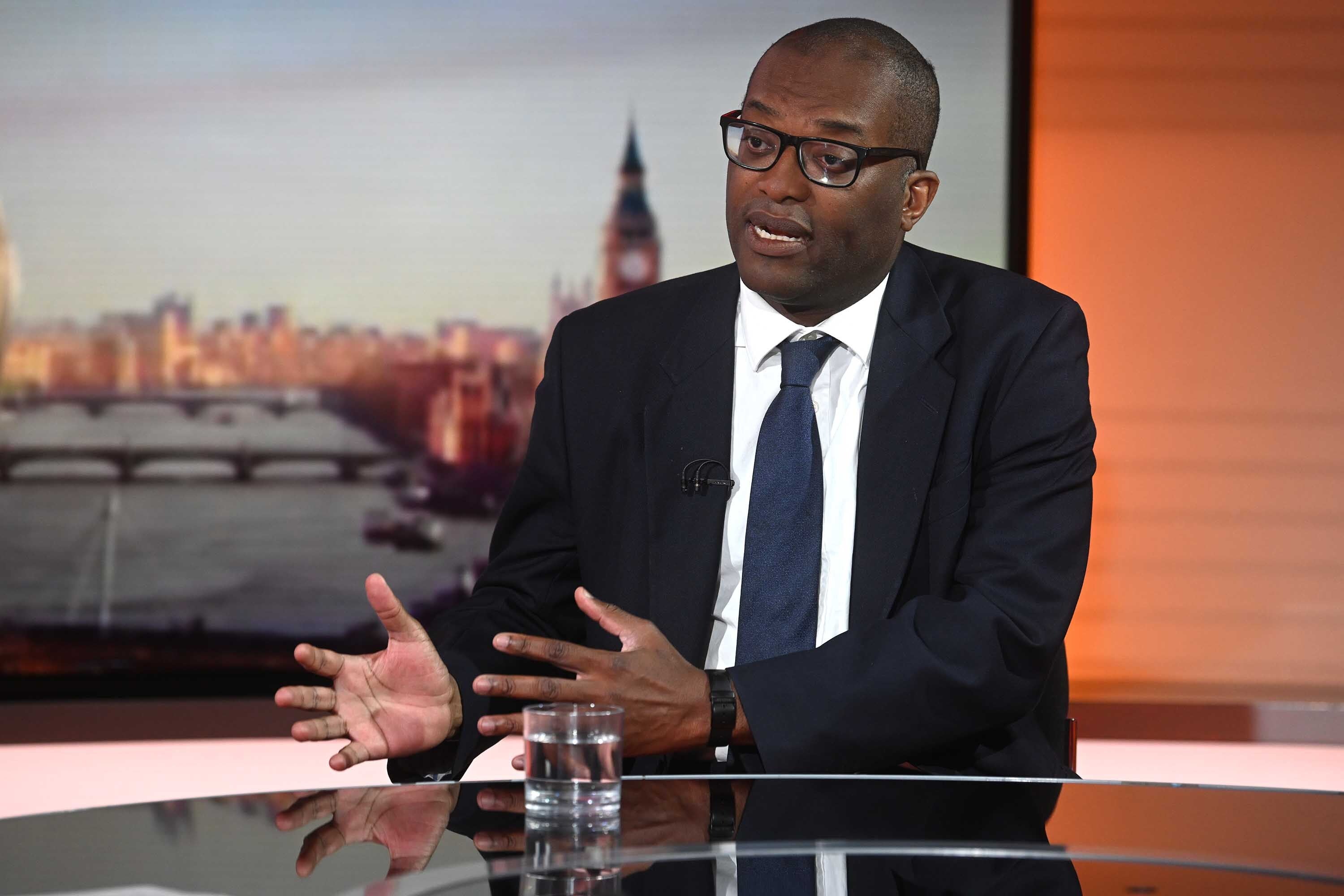
The Business Secretary has said current economic policy “is not going to cut it” and the Sunak campaign is warning against “magical solutions” as tax remains the key dividing line in the Tory leadership race.
Foreign Secretary Liz Truss and the former chancellor Rishi Sunak, the two candidates vying to become the next prime minister, will be put through their paces again at a Tory hustings in Eastbourne on Friday evening.
The economy and rising cost of living has been central to the debate so far, but the backdrop grew starker on Thursday with the Bank of England warning the UK faces two years of falling household incomes, with inflation set to soar to more than 13%, and the economy set to dive into the longest recession since the financial crisis.
Kwasi Kwarteng, the Business Secretary and a supporter of the Truss campaign, took aim at the former chancellor’s record, saying that putting up taxes is “adding insult to injury”.

He told Sky News: “I think the problem we have is very simple. I think we’ve got inflation which is, as you say, squeezing people’s incomes, but we’ve also got a rising tax burden.
“I’ve never understood why if we’re going to help people. How are we going to help people by putting up their taxes? Especially when their daily shop, their costs, are going up.
“What’s very clear to me from what the Bank of England said yesterday is that more of the same, just simply carrying on with our economic policy at the moment, is not going to cut it, it’s not going to help us get out of this difficulty.”
He added: “To say to people, your real incomes are being squeezed and I’m going to put your taxes up, I think is just adding insult to injury. You’re not actually dealing with the problem, and the way to deal with the problem is to have a slightly looser fiscal approach.”
But a supporter of Mr Sunak, former Cabinet minister Liam Fox, told the broadcaster borrowing money to implement tax cuts now would be taking a “risk” with the economy, and warned against “magical solutions”.
The last time that we actually, in a situation like this, cut taxes, borrowed money to fund tax cuts, was in Ted Heath’s government and it didn’t work out well— Liam Fox
Dr Fox said: “There is a global inflation element to deal with here. The question is how do we do that? My view is you deal with inflation first. Get control of borrowing. Then you take the measures to help grow the economy. And then you start to think about reducing taxes.”
He described the global factors at play, saying: “The question in the leadership contest, therefore, is do we maintain what is a traditional Conservative response to this or do we try something completely different and take a risk with the economy?
“The last time that we actually, in a situation like this, cut taxes, borrowed money to fund tax cuts, was in Ted Heath’s government and it didn’t work out well.”
He went on: “It’s not going to be easy, and I think this is a key difference between candidates in this election because it’s … do you actually say it’s going to be tough and be honest with the British people? Or do you pretend that there are magical solutions?”
Asked about Ms Truss’s assertion that a recession is not inevitable, Dr Fox said: “I think it’s inevitable given what’s happening in the global economy.”
Former housing secretary Robert Jenrick, also supporting Mr Sunak, told BBC Radio 4’s Today programme: “The two tax rises that have been a source of debate in recent weeks – one, a reduction in NICs which would benefit the top 15% of earners and, secondly, not proceeding with an increase in corporation tax for the 30% of largest companies, which heavily favours the very profitable businesses like your BPs or Persimmons – that doesn’t feel like the right focus now.”
CBI director general Tony Danker, speaking on BBC Radio 4’s World at One programme, said: “Each candidate is sort of picking their worse evil to focus on first. But the trouble with stagflation is you don’t get to choose between tackling inflation or tackling recession, you have to tackle both.
“So, that’s challenge number one to the candidates, to not pick which one of inflation or recession they care about more, but to come up with a plan that tackles both.”







